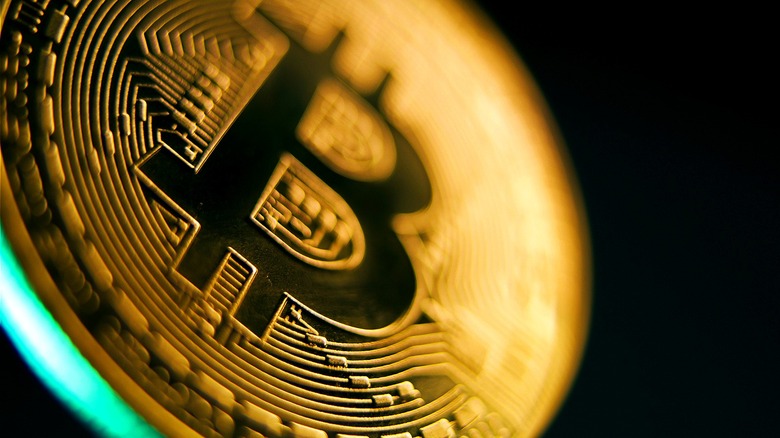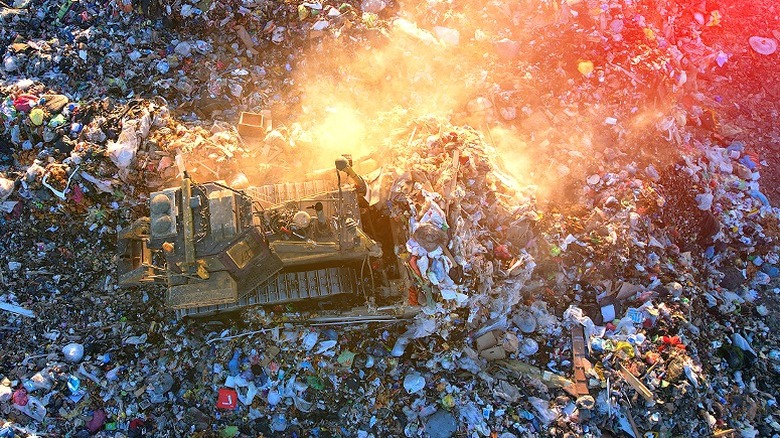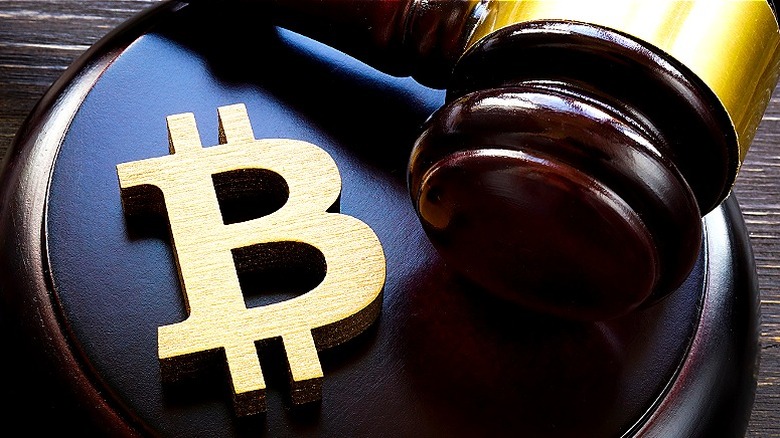The Wild Story Of A Man Who Accidentally Threw Away 7,500 Bitcoins
Ever search for buried treasure? Maybe you were a little kid, looking for a pot of gold at the end of the rainbow. Or as an adult, hunting for modern treasure like lost keys in your couch cushions, deals on travel tickets, fine wine at Costco for extra savings, or even rare and valuable Furbies. Whatever the treasure, it's the difficulty of the hunt that makes it thrilling — or depressing. The latter is the case for one man who accidentally threw away 7,500 bitcoins back in 2013, and is still hunting for them, all these years later. However, this isn't a simple case of looking for the bitcoin equivalent of $20 you accidentally trashed with a takeout bag. The bitcoin this Welsh man binned is worth nearly $500 million today.
Forget looking for a needle in a haystack; try hunting for a bitcoin wallet in a trash dump. This is what James Howells, an IT specialist based in South Wales, has been trying to do since accidentally throwing out his bitcoin babies with the bathwater more than a decade ago.
It started with a trashed hard drive
According to The New Yorker, during the summer of 2013, James Howells (28 at the time) put together some trash for his girlfriend to take to their local dump before he went on a trip. The trash included an old hard drive of Howells, which he remembered two months later, contained a pin (a cryptographic "private key," per The Guardian) to access bitcoin he had mined back in 2009. The trigger for Howells had been a story he read, as reported by BBC News, about a Norwegian man whose $22 bitcoin investment had turned into $850,000. Howells had much more than $22.
Howells headed to the local dump to retrieve his hard drive. There, he looked out at an ocean of trash, and despaired — until a dump employee suggested he get the city council's permission to dig for the lost treasure (er, hard drive) in the dump zone it most likely would be located. The search would be like finding a needle in a trash haystack the size of a soccer field, but with permission, Howells thought he stood a fighting chance at changing the financial future for himself and his family.
Howells is now suing his city council
As reported by The Guardian at the time, the city council in 2013 refused James Howells' initial request to excavate the dump site in search of his trashed hard drive (and with it his access to 7,500 in bitcoin), as well as subsequent requests.
The reason for the city council's denial was perhaps obvious: Even in the beginning of Howells' ordeal, the hard drive containing his valuable bitcoin wallet was likely sunken under the weight of a thousand half-eaten fish and chips. The denial seems to have been out of logistical concern, as well as in order to keep other treasure hunters from digging around the dump. In 2013, a city council representative commented to The Guardian, "Obviously, if it was easily retrieved, we'd return it."
While Howells seemed relatively resigned to having lost out on his regrettably trashed wallet and bitcoin in 2013, today has proven different. After losing a decade of time to a fruitless hunt, Howells filed suit against his city council in October 2024. He's seeking millions of dollars in damages (the 7,500 bitcoins today would be worth, as of this writing, $494 million) to make up for the fortune he could have had, had he not thrown out the hard drive — or been given the chance to excavate the dump to search for it.
Howells has quit his job and dedicated a team to retrieving the drive. Interestingly, even if he did retrieve his treasure from the dump, Howells may have one more UK law to contend with. Initially developed to handle people discovering artifacts while digging foundations, under The Treasure Act, anyone who discovers "treasure" must notify the authorities, who legally retain the right to keep some or all of the treasure for government use.


